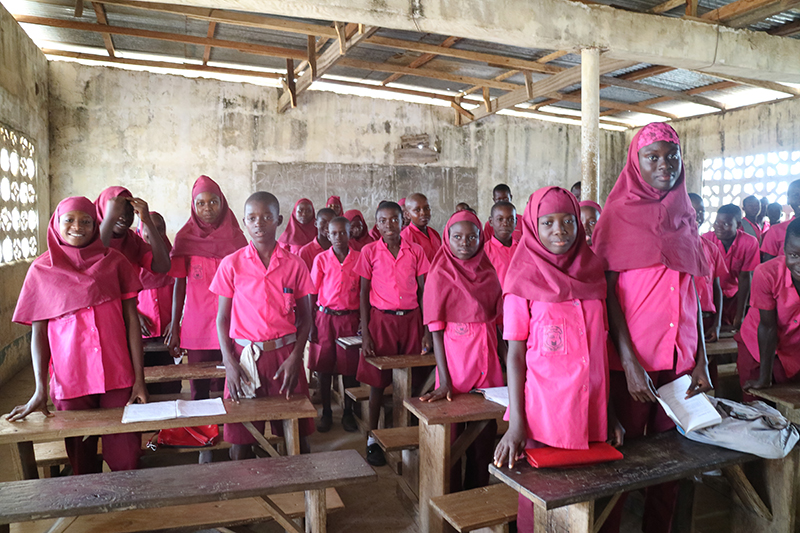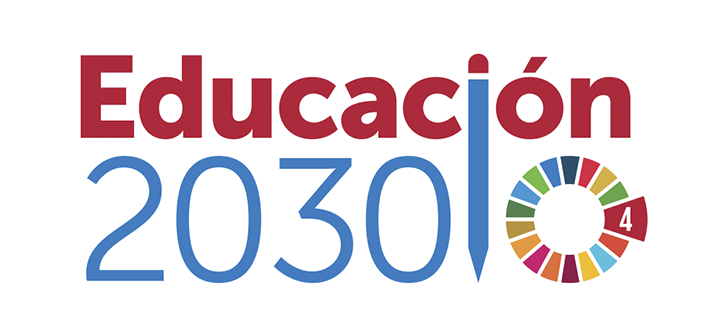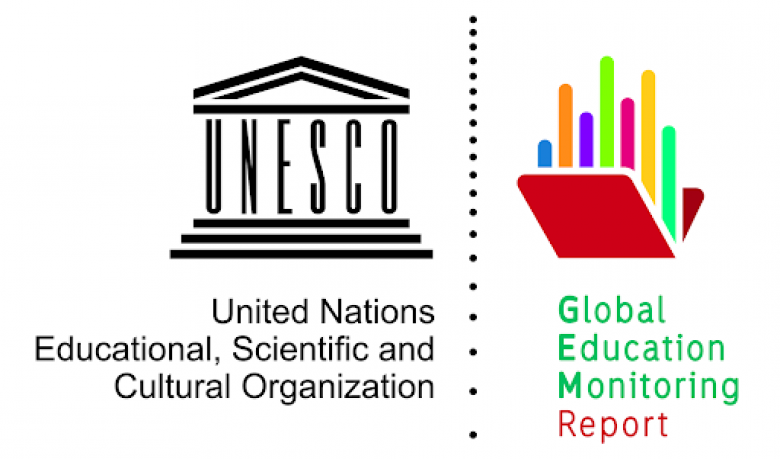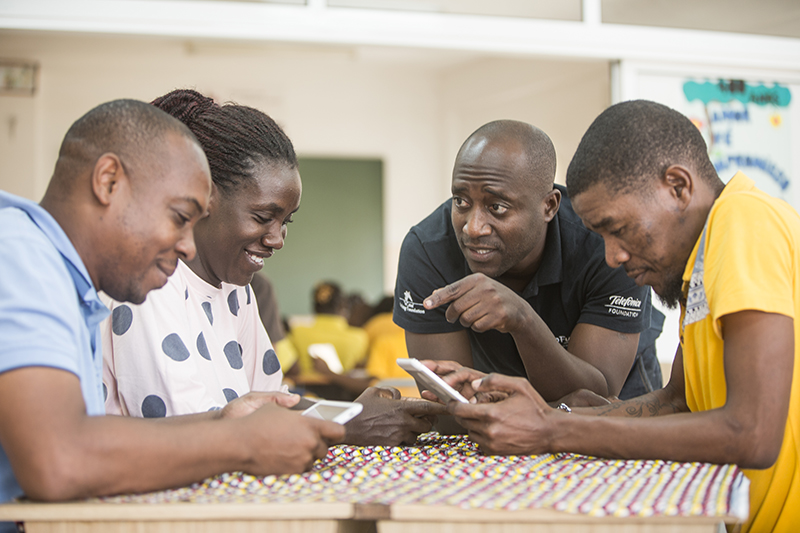A new education for a new age
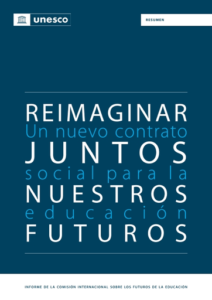 We live in a completely different world from the one we inhabited just a few decades ago and the challenges we face today (and will face in the future) are also substantially different: climate change and loss of biodiversity, rising economic and social inequalities, violation of universal human rights, increasing social and geopolitical violence… The current situation is certainly worrying, but can we change it?
We live in a completely different world from the one we inhabited just a few decades ago and the challenges we face today (and will face in the future) are also substantially different: climate change and loss of biodiversity, rising economic and social inequalities, violation of universal human rights, increasing social and geopolitical violence… The current situation is certainly worrying, but can we change it?
UNESCO believes we can. How? Through education; and that is why it has launched an initiative to “rethink the way knowledge and learning can shape the future of humanity and the planet”.
Its director general, Audrey Azouley, puts it this way: humanity is living in an exceptional era where business as usual is no longer possible, so it is necessary to transform the future and change course by “forging a new social contract for education […] that redresses injustices while transforming the future”.
The foundations of this new social contract are set out in the report Reimagining our Futures Together produced by UNESCO’s International Commission on the Futures of Education, the result of two years of work and a consultation process involving approximately one million citizens from 45 countries.
It is necessary to transform the future and change course by forging a new social contract for education that redresses injustices while transforming the future.
Education caught between past promises and uncertain futures
The report begins with a reflection on the current state of education and the progress made over the last 50 years and concludes that education today is ensnared between past promises and uncertain futures.
On the one hand, despite remarkable progress in expanding educational opportunities in recent decades, access to high-quality education is still not complete and equitable, as some data confirm:
- Globally, 262 million children and young people have no access to education.
- Nearly 617 million children and young people do not have the basic skills to read a text or do basic arithmetic. An alarming number, considering that it is almost twice the current population of the United States.
- In regions such as sub-Saharan Africa, 40 percent of girls do not complete secondary education.
- Some four million refugee children and young people are unable to attend school or take classes online.
Poverty continues to be a determining factor in access to educational opportunities and exacerbates inequalities for women, people with disabilities, those living in situations of instability and conflict, and those marginalised by ethnicity, language or remote locations.
On the other hand, as we approach the mid-century, the kind of education we will need will depend to a large extent on our understanding of the world of 2050, whose main challenges have already been mentioned at the beginning of this article, and which pose a scenario of uncertainties to which education will have to respond.
The old social contract
The social contract for education established in the 19th and 20th centuries upheld learning according to the following principles:
- Priority to individual achievements. Education was seen as a pedagogical project rooted in the lessons taught by teachers within the class structure and the classroom which, despite the shared learning environment, prioritised individual achievement.
- Syllabus organised by subjects. Education was provided through a curriculum that was organised as a list of subjects.
- Solitary teaching practice. Teaching was conceived as a solitary practice that depended on the professional competence of a single teacher to orchestrate effective learning, usually within a particular subject.
- One model for all contexts. The schools were organised according to a model with considerable structural, organisational and procedural similarities, regardless of the context.
- Education by age group and finite. Education was organised to teach groups of students of similar age in specialised institutions that operated at a relative distance from their families and communities, ending when children and young people were considered ready for their future life as adults.
Five proposals for renewing education
If during the 20th century, public education essentially sought to support development efforts through compulsory schooling for girls, boys and young people, today we must reimagine its objectives to meet the challenges facing humanity today. This means:
- Reinforcing education as a public project, a shared social commitment, as one of the most important human rights and one of the most relevant responsibilities of governments and the general public alike.
- Educating citizens who promote human rights, developing in them the skills that make students thinkers and people who act autonomously and ethically. This means equipping students to collaborate with others and develop their agency, responsibility, empathy, critical and creative thinking, and a full range of social and emotional skills.
How can we implement this new social contract that promotes the right to education and reinforces this right as a common asset and a public project that enhances our capacity to help and cooperate with each other? The report outlines five proposals and lines of action, which are summarised below:
- Cooperative and solidarity pedagogies. Pedagogy should be organised around the principles of cooperation, collaboration and solidarity. It should foster students’ intellectual, social and ethical skills, so that they can work together to transform the world through empathy and compassion. At the same time, bias, prejudice and divisions must be “unlearned”. Consequently, skills-based assessment should reflect these pedagogical aims, so as to promote meaningful growth and learning for all students.
- Interdisciplinary curricula with a focus on the environment and interculturalism. Curricula should stress ecological, intercultural and interdisciplinary learning, which helps learners to access and produce knowledge, while at the same time developing their ability to critique and apply it. Curricula must adopt an ecological understanding of humanity that rebalances the way we relate to the Earth, bearing in mind that it is a living planet and our only home. It is important to curb the spread of misinformation through scientific, digital and humanistic literacy that strengthens the ability to distinguish between information that is contrasted and truthful and that which is manipulated and biased. We should promote active citizenship and democratic participation in educational content, methods and policies.
- Teaching as a collaborative profession and a central figure in educational and social transformation. Teaching should be further professionalised as a collaborative endeavour that recognises the role of teachers as producers of knowledge and key figures in educational and social transformation. The work of teachers should be characterised by collaboration and teamwork. Reflection, research and the creation of knowledge and new pedagogical practices should be an integral part of teaching. This means that teachers’ autonomy and freedom must be supported, and teachers must be fully involved in public debate and dialogue about the futures of education.
- Protecting and transforming schools. Schools should be protected educational places, and as they promote inclusion, equality and individual and collective well-being, they should also be reimagined to further facilitate the transformation of the world towards more just, equitable and sustainable futures. Schools should be places that bring together diverse groups of people, offering them challenges and opportunities that do not exist elsewhere. Necessary modifications must be made to the architecture, spaces, timetables and student groupings in schools. Digital technologies should aim to reinforce schools and in no way replace them. Schools should shape the futures we aspire to by guaranteeing human rights and becoming examples of sustainability and carbon neutrality.
- Educational opportunities throughout life and in all settings. We should enjoy and enhance the educational opportunities that arise throughout life and in different cultural and social settings. People should have meaningful and quality educational opportunities throughout their lives. We should connect natural, physical and virtual places of learning, leveraging the best features of each. Governments bear the most responsibility here, and their capacity for public funding and regulation of education should be bolstered. The right to education needs to be expanded so that it becomes lifelong learning, encompassing the right to information, culture, science and connectivity beyond institutional and formal education.
It is clear to us that today’s civilisation is at a turning point, a “paradigm shift” in history. We must transform the way we think and stand in the world, and knowledge and learning are fundamental in this rebirth. But, how can we do it? How can the principles and proposals put forward in this report be put into practice? The authoring commission believes that “every learner, citizen, educator and parent has the potential and possibility to work locally and connect with others to transform educational practices, institutions and systems”.
A careful reading of the text under discussion leads to the conclusion that a universal, widespread and shared commitment to social dialogue, joint political thinking and action is required. Because the right and the duty to participate in building the future of humanity belongs to each and every one of its members, and we need to have a common vision of the public goals we seek through education



